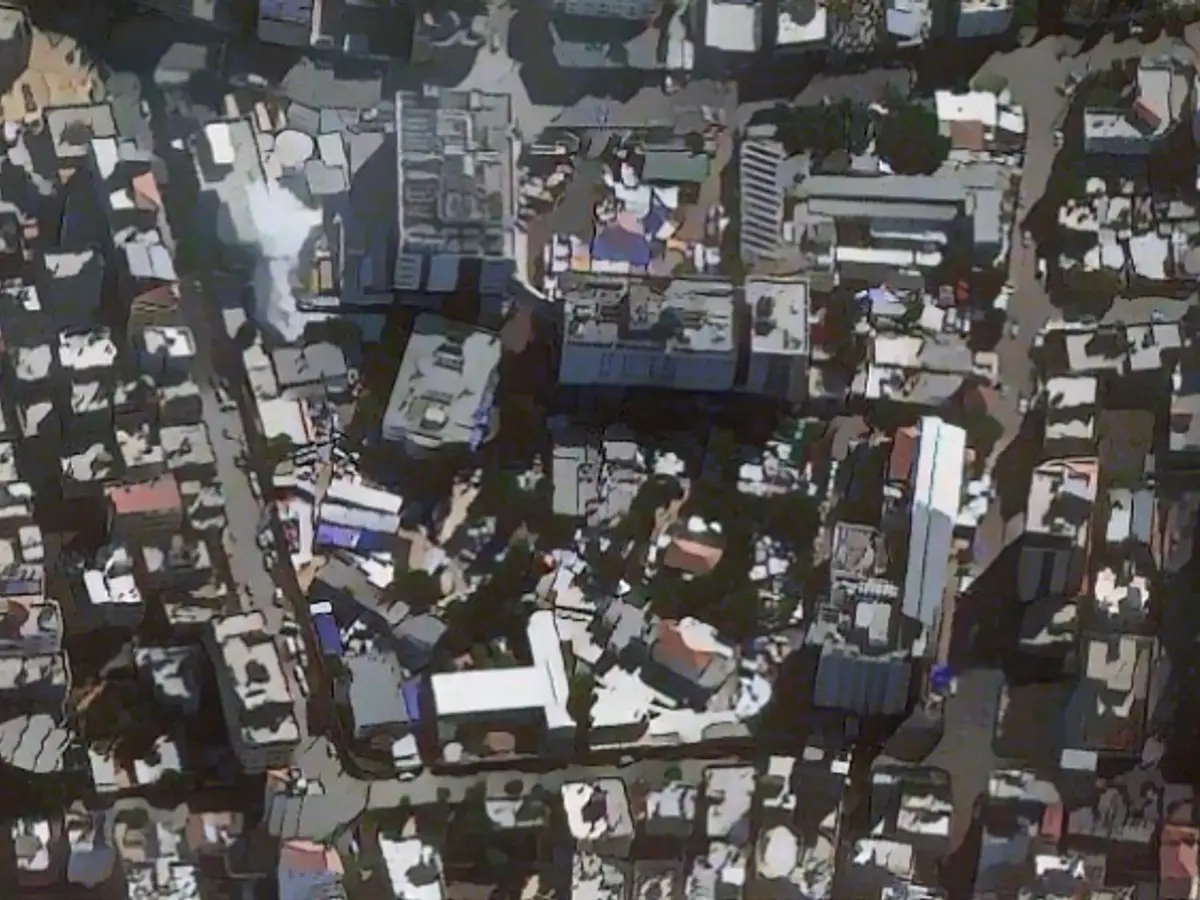Al-Aksa Hospital Emergency: Gaza's Lifeline in Crisis
Doctors Without Borders (MSF) has sounded an alarm about the dire situation at their hospital in Gaza Strip. On social media, they voiced their concerns over the urgent need for medical supplies and fuel at Al-Aksa hospital, located in the heart of the conflict zone.
So why the crisis? The ongoing border closures. "Break the siege! Immediate delivery of medical supplies to the entire Gaza Strip is urgently required," MSF pleaded.
As the conflict rages since December 1, around 150-200 war-injured patients have been admitted daily to the hospital. Currently, it houses around 700 patients, with new arrivals pouring in. "We are running out of basic supplies to treat them," warned emergency aid coordinator Marie-Aure Perreaut Revial.
Without immediate medical aid and fuel, life-saving operations and intensive medical treatment could come to a halt. Hospitals would lack oxygen, blood transfusions, and even the essential equipment to sterilize surgical instruments.
Failure to address this crisis could mean a shortage of surgical instruments, bone-setting devices, and basic pharmaceuticals, including those for chronic illnesses.
Understanding the Situation: A Deeper Look
The long-running Middle East conflict has left hospitals like Al-Aksa facing critical inventory shortages. The conflict, combined with Israeli restrictions, has intensified the scarcity of medical supplies, including fuel and medical equipment.
Avenues for Change: International Responses
Aid in Action: MSF's Efforts MSF operates in multiple facilities across Gaza, including Al-Aqsa hospital and Nasser hospital. They provide vital services like surgical support, wound care, and physiotherapy, as well as maternity and pediatric care, basic healthcare, vaccinations, and mental health services. Despite the blockade, hospitals struggle to provide adequate care due to the lack of essential supplies.
Humanitarian Aid: Overcoming Obstacles The Israeli blockade has significantly hindered humanitarian aid entering Gaza. Between May 2024 and January 2025, around 43% of humanitarian movements coordinated with Israeli authorities were rejected, marking the highest rate of denial observed since the hostilities began in October 2023.
Medical Evacuations: Navigating Challenges A limited number of patients have been medically evacuated from Gaza. Primary reasons include the closure of the Rafah crossing between Gaza and Egypt, and the severe triage system in place, only prioritizing critical patients for evacuation.
Pressing for Change: International Calls to Action Human Rights Watch has urged Israel to comply with international law and ensure its conduct aligns with legally binding orders from the International Court of Justice. Humanitarian organizations, including MSF, have called for the lifting of the blockade and the swift delivery of medical supplies and humanitarian aid to Gaza.
Addressing the Crisis: Tackling Medical Supply Shortages and Fuel Crises
The Road to Recovery
- Medicines and Essential Medical Supplies:
- Donations and Delivery: Provide immediate donations of essential medicines and supplies, including kidney patient medications, oxygen cylinders, and other critical medical equipment.
- Oxygen:
- Access to Oxygen Generators: Allow access to oxygen generators in Gaza, addressing the life-threatening shortage.
- Fuel Assistance:
- Diesel Fuel: Provide diesel fuel to support vital facilities sufficient for water wells, sewage treatment, and surgical welges.
- Humanitarian Corridors:
- Establish and maintain humanitarian corridors to ensure the entry of medical supplies, equipment, and personnel into Gaza.
- Financial Support:
- Financial Aid: Offer financial assistance to help reconstruct healthcare infrastructure and purchase essential medical equipment and supplies.
- Diplomatic Action:
- Diplomatic Pressure: Exert diplomatic pressure on Israel to enforce compliance with international humanitarian law, ensuring aid can reach Gaza.
- Collaboration with Local Authorities:
- Work with Local Healthcare Authorities: Collaborate closely with local healthcare authorities, such as the Gaza Health Ministry, to identify the specific needs of Al-Aksa Hospital and other healthcare facilities in Gaza.
- Long-Term Solutions:
- Infrastructure Reconstruction: Support long-term efforts to rebuild and strengthen the healthcare infrastructure in Gaza, including the restoration of power plants and other critical facilities.
By tackling these challenges, international organizations and governments can work towards alleviating the critical medical supply shortages and fuel crises at Al-Aksa Hospital and other healthcare facilities in Gaza.








